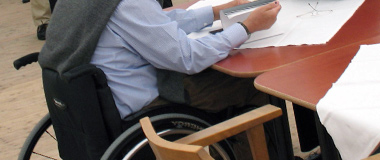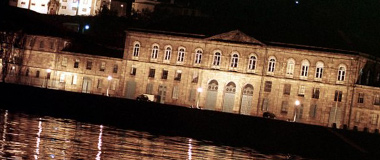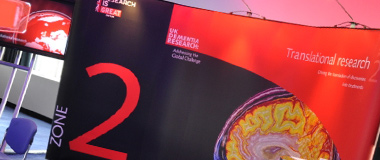Case Studies
Examples of the different types of events for which we have provided a full range of management support services are given below.

Biennial Conference
Since 2002 we have organised the biennial conference of a national advisory group that supports greater public involvement in NHS, public health and social care research.
The conference is attended by approximately 500 delegates from a range of diverse groups and organisations, comprising consumers of health services with both physical and learning disabilities, researchers and research commissioners in health, social care and public health.
The conference includes plenary presentations, a choice of 26 workshop sessions comprising submitted presentations, posters, displays, soapbox sessions, opportunities for informal meetings and social events.
Our tasks include ensuring that requests for support in order to make the conference fully accessible to all participants are met with regard to the provision of braille or large print material, loop system, signers, lip speakers, personal assistants, specific reserved seating and parking spaces.

International Conference
A three-day international conference in Portugal managed by the standards setting body for specialists in public health in the UK and supported by the WHO World Alliance for Patient Safety and the European Commission to provide a scientific forum to describe current research in patient safety and allied fields, develop future policy and establish networks.
The conference was attended by 400 delegates from over 60 countries worldwide and included keynote presentations, submitted poster presentations, workshops, roundtable discussions, a reception and a conference dinner.

Summer School
An annual summer school attended by 70 government funded doctoral students undertaking clinical and applied research with the intention of providing delegates with advice and information about developing their translational research career.
The programme includes plenary presentations, small group mentoring, practical workshops, oral and poster presentations of submitted work and a dinner with a prize giving ceremony.
Attendees work in small mixed, professional groups to prepare and present a research proposal to a panel of research funders who provide a critique of the proposals and assess their funding potential.

Industry Showcase And Marketplace
A major industry showcase and marketplace event to showcase the UK's expertise and capabilities in dementia research, held as part of the Prime Minister's challenge on dementia research with the aim of responding to barriers faced by industry in carrying out research.
Attended by 200 delegates, the meeting provided an opportunity for collaboration between an invited audience of senior industry decision makers and the UK's leading dementia researchers. The meeting included a marketplace session with four different zones, each of which comprised specially commissioned display material depicting basic science, translational research, clinical trials and patient data.
The event was followed by a reception for delegates at Lancaster House.

Roadshows
A series of 10 joint regional conferences between a government department and strategic health authorities around the country aimed at assisting in the implementation of a government health research strategy, attended by approximately 3000 delegates in total.
Each conference required liaison with a local planning group and included plenary presentations, workshops, networking opportunities and an extensive marketplace providing information on available resources and funding opportunities.
The marketplace displays were transported to each conference to be set up and dismantled and stored centrally throughout the duration of the events.

Training Course
A five-day training course on the theory and practice of evaluation organised by a UK membership and training society in conjunction with a government department to enhance international development evaluation skills and understanding.
The course included lectures from renowned experts in the field, workshops, practical exercises and discussions and a course dinner. The course was attended by 30 international participants comprising evaluation development practitioners, managers and commissioners from all sectors, including government institutions and international NGOs.
Extensive course material was sourced and collated into a training manual for delegates.
